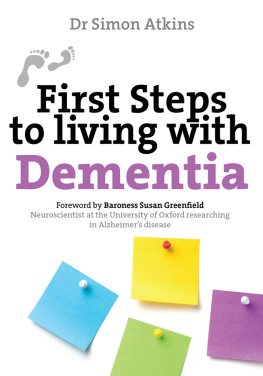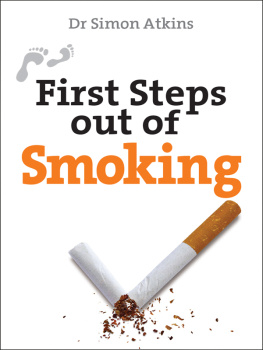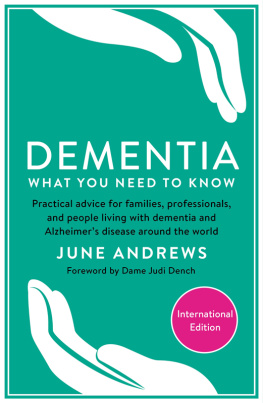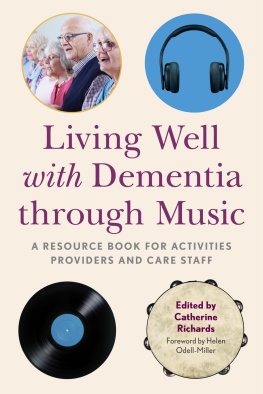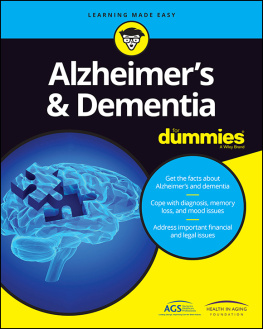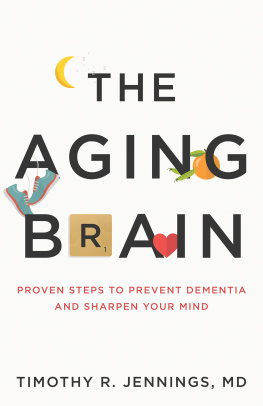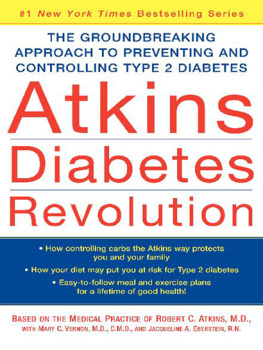(Physician) Simon Atkins - First steps to living with dementia
Here you can read online (Physician) Simon Atkins - First steps to living with dementia full text of the book (entire story) in english for free. Download pdf and epub, get meaning, cover and reviews about this ebook. City: Oxford, England, year: 2013, publisher: Lion, genre: Home and family. Description of the work, (preface) as well as reviews are available. Best literature library LitArk.com created for fans of good reading and offers a wide selection of genres:
Romance novel
Science fiction
Adventure
Detective
Science
History
Home and family
Prose
Art
Politics
Computer
Non-fiction
Religion
Business
Children
Humor
Choose a favorite category and find really read worthwhile books. Enjoy immersion in the world of imagination, feel the emotions of the characters or learn something new for yourself, make an fascinating discovery.
- Book:First steps to living with dementia
- Author:
- Publisher:Lion
- Genre:
- Year:2013
- City:Oxford, England
- Rating:4 / 5
- Favourites:Add to favourites
- Your mark:
- 80
- 1
- 2
- 3
- 4
- 5
First steps to living with dementia: summary, description and annotation
We offer to read an annotation, description, summary or preface (depends on what the author of the book "First steps to living with dementia" wrote himself). If you haven't found the necessary information about the book — write in the comments, we will try to find it.
First steps to living with dementia — read online for free the complete book (whole text) full work
Below is the text of the book, divided by pages. System saving the place of the last page read, allows you to conveniently read the book "First steps to living with dementia" online for free, without having to search again every time where you left off. Put a bookmark, and you can go to the page where you finished reading at any time.
Font size:
Interval:
Bookmark:


All advice given is for information only and should not be treated as a substitute for qualified medical advice.
Text copyright 2013 Simon Atkins
This edition copyright 2013 Lion Hudson
The right of Simon Atkins to be identified as the author of this work has been asserted by him in accordance with the Copyright, Designs and Patents Act 1988.
All rights reserved. No part of this publication may be reproduced or transmitted in any form or by any means, electronic or mechanical, including photocopy, recording, or any information storage and retrieval system, without permission in writing from the publisher.
Published by Lion Books
an imprint of
Lion Hudson plc
Wilkinson House, Jordan Hill Road,
Oxford OX2 8DR, England
www.lionhudson.com/lion
ISBN 978 0 7459 5556 8
e-ISBN 978 0 7459 5721 0
First edition 2013
Acknowledgments
p. 12: Figures from the Alzheimers Society website reprinted by permission of Alzheimers Society UK, 2012: alzheimers.org.uk/infographic.
p. 73: The Poems by Dylan Thomas Dylan Thomas. Reprinted by permission of David Higham Associates and New Direction.
p. 59: My mother was back, the lights were on by Oliver James, The Guardian ,
2nd August 2008. Reprinted by permission of Guardian New & Media Ltd.
Diagram p. 86 Sam Atkins, redrawn by Jonathan Roberts
A catalogue record for this book is available from the British Library
Cover image: Emilio Ereza/Alamy
Why this book?
Are you worried that you or someone you know has a problem remembering things?
Do they:
- seem to be having more and more senior moments
- keep forgetting to turn up for appointments
- leave food burning on the stove
- repeatedly phone to ask the same questions?
Are you fearful that they could be developing dementia?
With the number of people being diagnosed with dementia increasing as the population ages, theres a real need to understand the condition and what can be done to help.
This book explains:
- the symptoms of dementia
- the various diseases that can cause dementia
- the tests doctors carry out to make a diagnosis
- medical and alternative treatments
- where to get help for financial and social needs
- whether there are steps that can be taken to prevent dementia.
Although there is currently no cure for dementia, there is help available to deal with its disabling symptoms and this book will show you the first steps to take towards getting the help you need.
Written by an author with both medical and personal experience of dealing with dementia, this is a fantastic, comprehensive, and no-nonsense guide to a condition that affects one in three adults over sixty-five.
Alice Roberts , TV presenter and Professor of Public Engagement in Science at the University of Birmingham
Both of my parents suffered with Alzheimers disease. At times I felt overwhelmed and lost with the strain of it all not knowing where to turn or who to turn to. If only Id had Simons book at my fingertips during those bleak years. It would have been a friendly, enlightening, and informative guide through a very dark tunnel.
Fiona Phillips , TV presenter, Daily Mirror Columnist, and an Alzheimers Society Ambassador
Dedicated to the memory of my grandmother
Hilda Taylor and my uncle George Hardyman.
With special thanks to Ruth Clarke for all her
help while preparing the manuscript and to my wife
Nikki for her support while I was researching and
writing it.
Foreword
A short while ago I was away for the weekend and found myself sitting around the supper table with six people I had only just met. Inevitably perhaps, the conversation started with what each of us did. The first to respond said that she was actually having a much-needed break, courtesy of the rest of her family, since she was a full-time carer for her mother, who had Alzheimers disease. Immediately, another interjected that she too had a mother in the same condition. The topic of the evening immediately switched from careers to dementia
As we talked through the histories of what had happened, the personal anecdotes, and the more general issues involved, from basic neuroscience to practical needs, it became clear that these two women were desperate for information. No one, they said, had really explained things to them; no one had given them the full picture. Already, as the evening progressed, they were feeling more positive. Of course, they realized that there was currently no cure for dementia, but just understanding more was, for them, a morale boost.
Life sometimes delivers weird coincidences. Amazingly, that very weekend I had packed in my luggage the manuscript of this book, sent to me by Simon Atkins. It struck me that this was just the kind of thing that was evidently needed and currently not readily available in a simple, concise guide. The very questions raised at our dinner were, Im sure, typical of those in the minds of many who are now having their worlds tilted by the devastating realization of dementia. Dr Atkins book is remarkable in that it covers the whole gamut of issues, from a basic introduction to the brain through to advice on legal and financial help, and it does so in a concise and lucid, highly readable way. Above all, here is a compassionate overview from someone who knows what it is like to feel that someone you love is slipping away. Although it offers no magic bullet, no prospect of some easy snake-oil answer, it is an honest and clear account of the current state of play in understanding dementia. And, as I found with my supper companions, understanding is the first step forward.
Baroness Susan Greenfield
Neuroscientist at the University of
Oxford researching into Alzheimers disease
Introduction
Every seven seconds someone in the world is diagnosed with dementia.
No, thats not a typo. You can even rub your eyes and re-read it if you like, but the statistic wont have changed. In fact, by the time youve done all that, there will already have been a new case diagnosed somewhere else.
But perhaps it is worth reading again, because its quite a shocking statistic that may take a while to sink in. And what it means is that by the time youve watched an average-length movie or your favourite team playing ninety minutes of football, there are almost another 850 people on the planet whove been given that diagnosis.
To bring it closer to home, it may only be a matter of time before you or I are given that news ourselves. And, without a shadow of a doubt, it guarantees that someone we know and love will one day be told that they have dementia.
And we are only talking about those people who are actually being given a diagnosis. There is concern that family doctors like me are only picking up half the cases in our practices that we should be. This could be the tip of a very much larger, and scarier, iceberg.
So, what do we mean by dementia?
We have all had whats laughingly called a senior moment. We forget where we left our car keys, for example, and then, after frantically turning the house upside down, find they were in our pocket all along. Or we bump into an old neighbour for the first time in ages and, despite having nattered to them over the garden fence for more than a decade, find it impossible to think of a name to fit their familiar face.
Then there are the times when we get in a muddle and pour tea into the sugar bowl, or forget to take the Yorkshire puddings out of the oven with the roast, only to be reminded of them five minutes later by the whiff of burning batter.
Next pageFont size:
Interval:
Bookmark:
Similar books «First steps to living with dementia»
Look at similar books to First steps to living with dementia. We have selected literature similar in name and meaning in the hope of providing readers with more options to find new, interesting, not yet read works.
Discussion, reviews of the book First steps to living with dementia and just readers' own opinions. Leave your comments, write what you think about the work, its meaning or the main characters. Specify what exactly you liked and what you didn't like, and why you think so.

